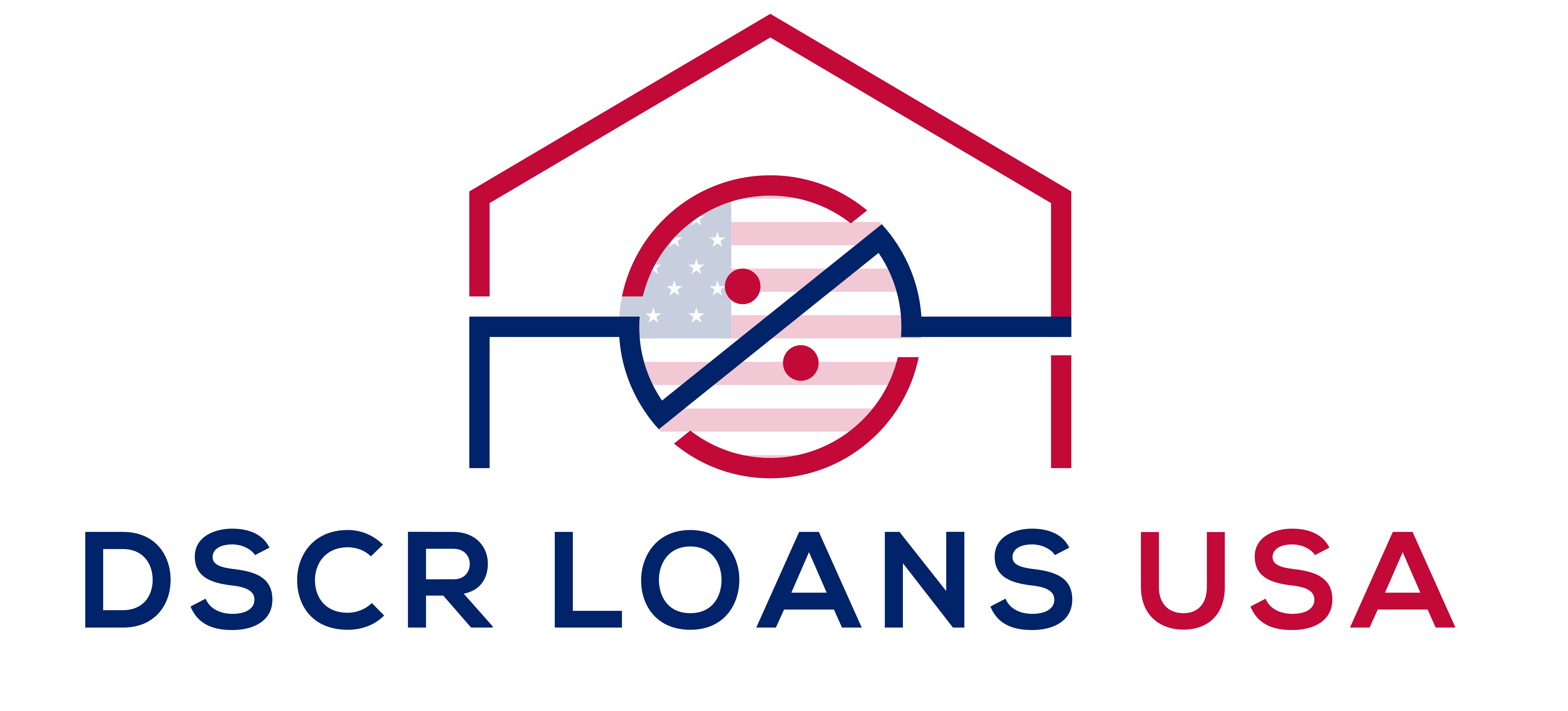If you’re investing in North Carolina’s real estate market, you may wonder how to get a DSCR loan in NC.
This type of loan could be your ticket to securing investment property financing based on rental income, not just your income.
Our guide breaks down the eligibility requirements and application process, and provides practical insights to navigate the “how to get DSCR loan NC” landscape in North Carolina. Ready to dive in? Let’s demystify how you can leverage your investment’s income to fuel growth.
Key Takeaways
- North Carolina’s DSCR loans offer property investors a financing option based on property cash flow rather than personal income, with a typical DSCR of 1.2 to qualify, but some lenders may accept as low as 1.0.
- Eligibility for NC DSCR loans ranges from $150,000 to $3,000,000, with terms up to 30 years, minimum credit scores around 660, and LTV requirements necessitating 20-25% down payments.
- The application process for NC DSCR loans involves calculating the DSCR ratio, preparing thorough documentation, understanding variable interest rates (average around 7.75% as of March 2024), and navigating possible prepayment penalties.
Understanding North Carolina DSCR Loans

The North Carolina DSCR loan, a beacon of opportunity for property investors, breaks the mold of traditional financing. These NC DSCR loans are not bound by the stringent documentation requirements of the Consumer Financial Protection Bureau, offering a breath of fresh air to those weary of conventional loan hurdles. They pivot the focus from your personal income to the income-generating power of the property itself, making them particularly alluring for real estate investors in North Carolina. With a DSCR loan North Carolina, you can unlock the full potential of your investment property.
With a DSCR loan, the property’s gross rental income and total mortgage payment are the stars of the show, crafting a DSCR calculation that centers on the property’s cash flow. It’s a game-changer, transforming the way you look at property investment financing.
The Importance of Cash Flow in DSCR Loans
Cash flow is the lifeblood of DSCR loans in North Carolina, a vital metric that dictates the ebb and flow of your loan approval process. The debt service coverage ratio (DSCR) stands as a sentinel, ensuring that only properties with a strong cash flow pulse can secure financing. Lenders typically look for a DSCR of 1.2 or higher, signaling that the property can comfortably cover its debt obligations with income to spare.
Yet, flexibility is not a stranger to these loans, with some lenders willing to consider properties with a DSCR as low as 1.0, like Visio Lending, opening doors for a wider array of investment opportunities. Whether you’re eyeing a long-term rental or a quick-turnaround fixer-upper, the emphasis on the property’s cash flow over your personal income is a paradigm shift that could reshape your investment strategy, making it crucial to understand the importance of a property’s cash flow.
Loan-to-Value Ratio and Down Payment Requirements
Embarking on the journey toward a DSCR loan in North Carolina, you’ll encounter the loan-to-value (LTV) ratio, a measure of lending risk that financial institutions scrutinize with a keen eye. This ratio influences the amount you’ll need to front as a down payment, typically ranging between 20 to 25 percent of the total loan value. An LTV ratio of 80 percent is the norm, anchoring your investment on a foundation of equity and financial prudence.
This requirement not only aligns with the lender’s risk assessment but also serves as a testament to your commitment to the property, laying the groundwork for a successful investment.
Eligibility Criteria for North Carolina DSCR Loans

Eligibility for a North Carolina DSCR loan hinges on a tapestry of criteria, each thread as important as the next. At the core lies the minimum DSCR, a figure that lenders use as a litmus test for loan approval. You’ll find most lenders set the bar at 1.25, though there are those like Griffin Funding who may dip as low as 0.75, offering a wider net for potential borrowers.
The range of loan amounts is vast, from $150,000 to a staggering $3,000,000, with a menu of term options for the savvy investor, including the desirable 30-year terms without the looming shadow of balloon payments. A minimum credit score also plays a leading role, with the minimum FICO requirement hovering around 660, a number that can influence interest rates alongside factors such as property details and local market dynamics.
Credit Score Requirements
Credit is king in the realm of DSCR loans in North Carolina. A robust credit score not only opens the gates to loan approval but also can sway the terms in your favor. While 640 stands as the common benchmark, signaling responsible financial management, there are lenders who prefer the added assurance of a 660 score.
This requirement mirrors the standards set for traditional investment property loans, ensuring a level playing field for all types of investors.
Evaluating Property Cash Flow
When lenders evaluate your DSCR loan application, they delve into the financial anatomy of your property, dissecting its cash flow to ensure its vitality. The DSCR calculation is a precise formula, subtracting operating expenses from the property’s total income to reveal the net operating income, which is then sized up against the annual debt service payments. A DSCR greater than 1 is the golden ratio, signaling sufficient income to cover the loan’s demands and securing the lender’s nod of approval.
The income potential of your property isn’t just a number on a spreadsheet; it’s the heartbeat of your investment, influencing not only your eligibility but also the interest rate you’re offered. Properties boasting robust rental income streams are the darlings of the DSCR loan world, more likely to attract favorable loan conditions.
Navigating the Application Process for a DSCR Loan in NC

The application voyage for a North Carolina DSCR loan is charted by a series of navigational beacons, starting with the calculation of the DSCR ratio. Here, the property’s gross rental income and total mortgage debt, encompassing:
- Principal
- Interest
- Taxes
- Insurance
- Potential HOA fees
are the coordinates used to plot your course.
Once you’ve charted a qualifying DSCR ratio, you’re ready to sail into the application phase, which can typically be navigated through the lender’s digital docks.
Calculating Your DSCR Ratio
Calculating your DSCR ratio is akin to charting a star by which to navigate. This ratio, birthed from the property’s gross rental income divided by its total monthly debt service (PITIA), illuminates the financial strength of your investment.
For instance, if your property is a beacon drawing $100,000 in gross rental income annually with a total debt service of $80,000, your DSCR would shine at 1.25, guiding you confidently towards loan approval.
Preparing Necessary Documentation
As you prepare to dock at the lender’s harbor, ensure your cargo of documentation is in order. The manifest includes:
- Bank statements, showcasing your financial stability
- Tax returns, authenticating your income history
- Lease agreements of your property, serving as a ledger of your rental income
- Proof of insurance, confirming that your asset is shielded from the storms of uncertainty
- Personal identification, such as a driver’s license, and any property management agreements, to verify your identity and your property’s operational framework
- Rent rolls, operating statements, and a schedule of real estate owned, each document playing a critical role in painting a comprehensive picture of your investment portfolio
- Recent property tax bills, which will be scrutinized to assess the property’s tax obligations
Interest Rates and Loan Terms for North Carolina DSCR Loans

The seas of interest rates for North Carolina DSCR loans are vast and varied, with currents that can shift from lows around 5.99% to highs up to 10.00%, and a starting point often at 7.5%. As of March 2024, the average for rental properties hovered at 7.750%, with long-term rental loans just a nudge higher at 8.04%.
The loan terms are equally diverse, offering:
- 30-year options free of balloon payments
- other configurations like interest-only payments
- fixed-rate mortgages
- adjustable-rate mortgages
These options are designed to suit your investment sails.
Remember, lender and service fees, ranging from zero to three percent of the loan amount, will also chart into your total cost calculations. Take, for example, a single-family residential fix and flip financed in October 2022, which secured an interest rate of 9.99%, showcasing the variability based on the investment strategy employed.
Factors Influencing Interest Rates
The winds that sway the interest rates of DSCR loans are influenced by a multitude of factors, each with the power to steer your loan terms towards favorable shores or into choppy waters. The factors that influence interest rates include:
- The borrower’s credit score, which guides lenders in setting the rate
- The loan-to-value ratio, which determines the amount of the loan compared to the value of the property
- The debt-service-coverage ratio, which measures the borrower’s ability to cover the loan payments with their income
Understanding these factors will help you navigate the lending landscape and secure favorable loan terms.
In North Carolina, where starting rates sit at a baseline of 7.5%, a borrower’s credit history and the local property market’s climate can have a significant impact on where the needle settles.
Understanding Prepayment Penalties
Should you choose to sail into the sunset before your loan term’s end, be aware of the prepayment penalties that may apply. These charges, akin to a docking fee for leaving the harbor early, are structured to decrease annually over the first five years in a typical ‘5/4/3/2/1’ pattern. It’s worth noting that lower interest rates often come hand-in-hand with higher and longer prepayment penalties, a trade-off to consider when plotting your course.
However, there are navigational aids such as buy downs and customized loan programs that can reduce these penalties, offering you the flexibility to adapt to the changing tides of your investment journey.
Tips for Successfully Securing a DSCR Loan in NC
The quest for a DSCR loan in North Carolina is laden with opportunities and potential pitfalls. To increase your chances of success, consider consulting with mortgage experts who can chart a course tailored to your unique situation, helping you navigate the complex waters of loan approval.
The advantages of a DSCR loan are manifold, including:
- Offering a gateway to investment properties even without immediate income
- The promise of rapid closing times
- Loan amounts that can reach as high as $5 million
- No cap on the number of properties you can acquire
- The allure of interest-only payment options.
Building a Strong Credit History
To hoist your sails in the DSCR loan ocean, building a strong credit history is paramount. Here are some tips to help you:
- Make timely payments, as they are like a steady wind in your sails and significantly contribute to a healthy credit score.
- Manage credit balances with skill to show lenders that you can navigate the financial seas with discipline.
- Aim for favorable terms by demonstrating your ability to handle credit responsibly.
By following these tips, you can increase your chances of securing the loan and getting favorable terms.
Researching Lenders and Loan Programs
Your voyage will require a keen eye for the right lender and loan program, each with its own map of terms and conditions. North Carolina’s DSCR loan programs offer a treasure trove of possibilities, potentially allowing investors to command an armada that exceeds the usual ten-mortgaged-property limit. A seasoned sailor, one with a proven track record of financial success, may find lenders more willing to offer a favorable wind, possibly even reducing down payment requirements.
Consulting with mortgage advisors is like consulting with seasoned navigators, ensuring that the DSCR loan you choose aligns with your investment strategy and financial goals.
Short-Term Rental Considerations for DSCR Loans
For the adventurers eyeing the lucrative lands of short-term rentals, such as those listed on platforms like VRBO or Airbnb, North Carolina DSCR loans offer a vessel capable of navigating this unique market. The loans offer the promise of quick closing times and significant loan limits up to $5 million. They also provide the flexibility to own an unlimited number of properties. With a DSCR loan, the constraints of traditional lending fall away, replaced by a flexibility that accommodates the dynamic and often lucrative world of short-term rentals.
Whether your rental property is nestled in a quaint mountain town or perched along the sun-drenched coast, DSCR loans adapt to the projected rental income and diverse market conditions, ensuring your short-term rental endeavors are well-financed for rental property investors.
Summary
As we dock at the end of our journey, let us reflect on the treasures unearthed. We’ve navigated the waters of North Carolina DSCR loans, charting a course through the importance of property cash flow, the anchoring force of LTV ratios and down payments, the guiding stars of eligibility criteria, and the lighthouses of loan application and documentation. We’ve weathered the currents of interest rates and prepayment penalties, and we’ve unfurled the sails with tips for securing these coveted loans. Whether for long-term rentals or short-term vacation gems, the DSCR loan in North Carolina is a vessel capable of carrying your property investment aspirations to new horizons.
Frequently Asked Questions
What exactly is a DSCR loan and how does it differ from traditional loans?
A DSCR loan, also known as a Debt Service Coverage Ratio loan, differs from traditional loans in that it assesses the property’s cash flow rather than the borrower’s personal income. This type of loan offers an alternative approach to qualification and documentation, emphasizing the property’s income potential.
Can I use a DSCR loan for a property with a lower DSCR ratio than 1.25?
Yes, some lenders, such as Griffin Funding, may accept DSCR ratios lower than 1.25, allowing for lower ratio investment opportunities.
Are there specific credit score requirements for obtaining a DSCR loan in North Carolina?
Yes, a minimum credit score of around 640 is required for a DSCR loan in North Carolina, with some lenders preferring a score of 660. This is comparable to traditional investment property loan requirements.
How do I calculate the DSCR ratio for my property?
To calculate the DSCR ratio for your property, divide the gross rental income by the total monthly debt service, which includes principal, interest, taxes, insurance, and potentially HOA dues (PITIA). A ratio greater than 1 indicates sufficient income to cover debt obligations.
What sort of documentation will I need to prepare for a DSCR loan application?
To apply for a DSCR loan, you will need to prepare a range of documentation, including bank statements, tax returns, property lease agreements, proof of property insurance, personal identification, property management agreements (if applicable), operating statements, a schedule of real estate owned, and recent property tax bills for a thorough evaluation of your financial and property management history.
Ready for More Great Tips and Information? Join Our Email List Today!

